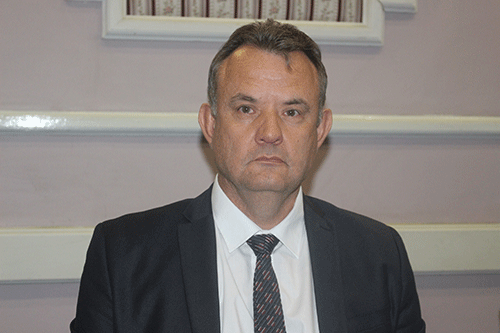Namibia and Botswana are a step closer to formalising the usage of IDs for travel between the two countries.
In November 2021, President Hage Geingob launched the new-look ID, which he described as a great new beginning that will allow free movement of people around Africa, which he said is a key element of African unity as the ID will be used as a passport for travel to other African countries.
Geingob and his Botswana counterpart, Mokgweetsi Masisi, have already agreed that the IDs could be used to travel between the two countries. The fingerprint system on the old ID will be replaced by a quick response code (QRC), and the barcode will be replaced by a machine-readable zone (MRZ).
Asked how far this process is before its formalisation, home affairs executive director, Etienne Maritz told New Era that the two governments have made an assessment in December 2021 and the public will be informed in due course when this will be implemented.
Maritz mentioned the new ID is more secure as the quick response code and the machine-readable zone will contain elements that will be read by a machine and are not easy to forge.
Furthermore, he noted the new ID can be used as a travelling document in the future and is compatible with the specification of the international civil aviation organisation.
Additionally, the new ID can be linked to the embracement of E-governance.
In his New Year’s message, Geingob stated Namibia will need to diversify its portfolio of economic activities in strategic sectors, which can support the country’s access to the African Continental Free Trade Area (AfCFTA) and the global market.
“Diversification of economic products, including finished products, and unique services will enable us to be cushioned against external risks and shocks. In order to achieve this, we need to retool and reskill our workforce. If there is one thing this past year has taught us, it is that one must adapt, evolve or die. Therefore, to prepare ourselves to benefit from the AfCFTA and continental integration, we are taking initial steps aimed at enhancing regional integration,” he said.
Of which one of these steps, Geingob says is the introduction of the new IDs with advanced features for nationals, residents, and refugees.
Hence, Namibia and Botswana are working on the usage of IDs for travel between the two countries, to be implemented following the formalisation of the process.
“We in Namibia, as trailblazers, have decided to refer to the refugee ID as a document for African guests because Namibia is part of Africa and we cannot refer to fellow Africans as refugees. It should be noted that Namibia was the first country to host the African Union flag and to sing the African Union anthem. We are now the first country to affirm a Pan-African vision of refugees as guests of Namibia.
These steps will among others enable Namibia to do business with the rest of the continent seamlessly and with reduced stumbling blocks,” Geingob remarked.
During the launch in November, home affairs and immigration minister Albert Kawana said the ministry continues to innovate, hence new measures have also been put in place in order to ensure continuous civil registration and identity management.
A number of African countries have already adopted the new look ID. These include Botswana, South Africa, Malawi, Uganda, Nigeria, Cameroon, Djibouti, Gabon, Ghana, Ivory Coast, Mauritania, Mauritius, Zambia, Sao Tome, and Principe, Cape Verde, Guinea Bissau, Lesotho, Niger, and Sierra Leone.
- anakale@nepc.com.na


